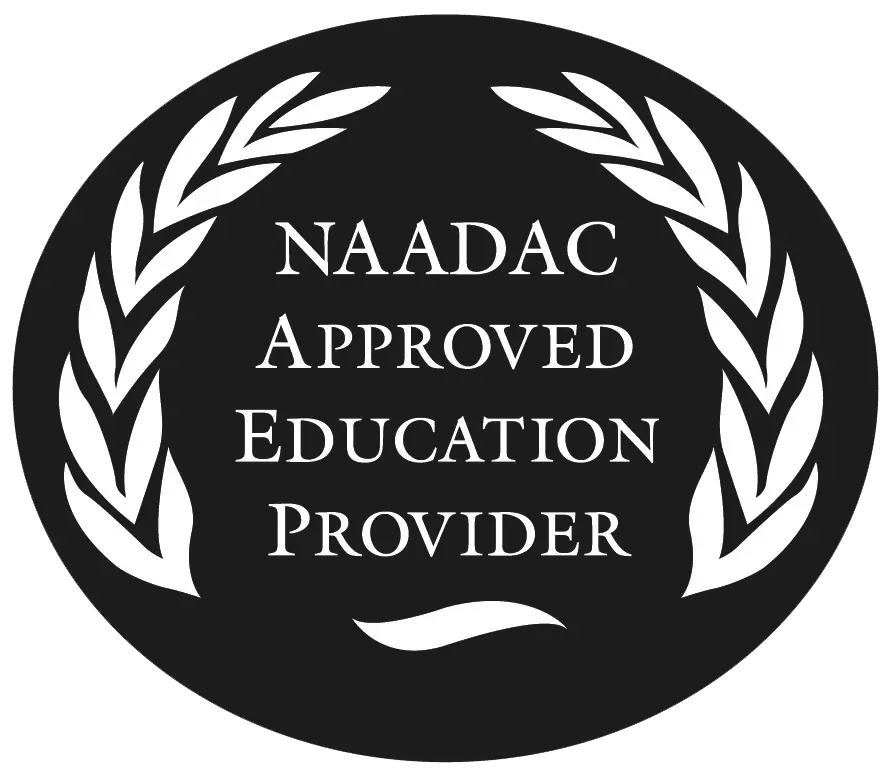Advanced Training in Disordered Gambling
Approved Education & Training, CEUs for Counselors & Licensed Professionals
Register for Training & CEUsYou can make a difference in the lives of people struggling with problem gambling – as professional counselor.
Advanced courses in disordered gambling are provided for current clinical counselors to expand their licensure to serve clients with gambling disorders.
The Bellevue University Gambling Specialties program is approved by the Nebraska Council on Compulsive Gambling (NCCG). The Certificate program can be tailored to meet your individual state’s requirements; however, it is important that you check with your state licensure or certification board to see if Bellevue University’s offerings will be accepted toward gambling certification in your state.

Upcoming Start Dates
- Advanced - Internet Gambling
- Advanced - Older Adults & Gambling
- Advanced - College Gamblers & Problem Gambling
- Advanced - Trauma and Problem Gambling
- Advanced - The Process of Change and Gambling Disorders
- Advanced - Nutrition and Problem Gambling Addiction Recovery
September 9-22, 2024
100% Online Webinar — Self-paced
October, 7-20 2024
100% Online Webinar — Self-paced
November 4-17, 2024
100% Online Webinar — Self-paced
December 2-15, 2024
100% Online Webinar — Self-paced
100% Online Courses – Pass/Fail
Prerequisites
Nebraska resident; Clinical Counselor
Advanced courses are to be taken after a clinical counselor has served clients in a licensed capacity for some time. Though Bellevue University is a NAADAC Approved Education Provider (#110560), it is important that you check with your state licensure or certification board to see if these online offerings will be accepted toward gambling continuing education units (CEUs)/licensure.
Course work:
- You may complete each online self-paced course over a two-week time frame.
Advanced Gambling Courses
Course Offerings:
Each course stands alone, so you may take one or all in any order.
(Click a course name below to view course details)
This self-paced 4-module offering will consist of a gambling disorder overview, understanding Internet Gaming Disorder criteria, discussion of various internet games and their potential and real effects as an addiction and a basic strategic prevention framework to help inform adults and children the potential dangers of internet gaming.
Objectives:
- Define Internet Gaming Disorder
- Compare and contrast related disorders
- Understand trends in internet gaming
- Differentiate between various outlets of compulsive gaming
- Identify populations at-risk for Internet Gaming Disorder
- Identify 5 steps of the Strategic Prevention Framework
- Utilize the Strategic Prevention Framework to develop and implement prevention strategies
This self-paced 3-module offering will consist of some basic assumptions to include relational issues, direct observation, and counselor self-efficacy. Participants will examine their current supervisory practice and preferences in terms of definition, responsibilities and roles.
Objectives:
- Define the primary goals of individual clinical supervision practice
- Identify discrepancies between individual current (expected) supervisory practice, ideals and some causes of discrepancies
- Analyze individual supervisory practice using the definitions, responsibilities and roles of the clinical supervisor covered in the online course
- Identify barriers when trying to balance these roles and responsibilities
This self-paced 5-module offering will consist of advanced education regarding older adults and dependency. Gambling addiction will be the main focus. Co-occurring disorders that are both present and exacerbate disordered gambling will be discussed.
Objectives:
- Define older adults and the stages of aging in adults
- Identify the prevalence of disordered gambling in the aging population
- Describe the types of games that appeal to older adults
- Identify disorders common in older adults and the impact of gambling and disordered gambling on the dual disordered older adults
- Identify barriers to successfully reducing or eliminating disordered gambling in the older adult population
This self-paced 3-module offering consists of advanced education regarding college gamblers and problem gambling. Gambling addiction will be the main focus. Co-occurring disorders that are both present and exacerbate disordered gambling will be discussed.
Objectives:
- Define college gamblers and the stages of college problem gamblers
- Identify the prevalence of disordered gambling in the college gambler
- Describe the types of gambling that appeal to college gamblers
- Identify disorders common in college and the impact of gambling, and disordered gambling
- Identify barriers to successfully reducing or eliminating disordered gambling in the college population
This self-paced 4-module offering will consist of advanced education regarding trauma and problem gambling. Gambling addiction will be the main focus. Co-occurring disorders that are both present and exacerbate disordered gambling will be discussed.
Objectives:
- Define trauma and the stages of trauma
- Define problem gambling and DSM-5 criteria
- Identify disorders common with trauma and the impact of gambling, and disordered gambling
- Identify theoretical approaches to successfully address disordered gambling in the trauma population
This self-paced 3-module offering will consist of advanced education regarding the process of change and gambling disorders. Gambling addiction will be the main focus. Breaking down the "process of changes" in gambling disorder treatment and knowing who you are working with will be discussed.
Objectives:
- Define what works in the treatment of a gambling disorder
- Define gambling disorder treatment best practices
- Identify and understand the stages of a client's readiness for change
This self-paced 4-module offering will consist of advanced education regarding nutrition and problem gambling addiction. It will introduce you to why nutrition is important in addiction recovery and helping the body to heal. It will also help you identify tools to help clients monitor their nutritional progress.
Objectives:
- Define what works in the treatment of a gambling disorder
- Define gambling disorder treatment best practices
- Identify and understand the stages of a client's readiness for change
Note: Completion of these courses alone does not guarantee state or regional certification or licensure. Refer to your state licensing agency for specific information on certification requirements.
Meet the Faculty
Cost & Payment
- $95
- Payment must be received with online registration. Registration is not complete without full payment.
- Register at least two (2) business days prior to the beginning of a course. Registration for all courses will be available 60 days prior to the course start date.
- Once the course starts there is no refund. Refunds are only available if the package is canceled before the first course start date.
- Students will receive a confirmation email upon receipt of registration.
Note: Please note that these classes are not for college credit, and financial aid will not cover the cost.
Contact Us
For more information or help with registration, contact:

Jack Nelson, MPA, Program Manager
402.557.7803
[email protected]
Jack Nelson received his Master’s in Public Administration (MPA) from the University of Nebraska – Omaha with a focus on nonprofit management and an undergraduate degree in Business/Vocational Education from the University of Northern Iowa. Nelson has over 30 years of experience working and teaching in nonprofit organizations including in childcare, healthcare, and education. He has been an adjunct professor for Bellevue University in the College of Arts and Sciences since 2005 and also teaches in the College of Business undergraduate Nonprofit Management program.
Currently, Nelson is the Program Manager who oversees contracts and special programs within the Community of Practice focused on behavioral health in Bellevue University Continuing Education. Other experiences that provided a foundation for his career include roles as an Organizational Development Consultant for a regional healthcare organization, a Director of Programs for a childcare agency and as Program Consultant working with small and medium nonprofit childcare organizations focused on program development.
Approved Quality Education
Noncredit disordered gambling courses are derived from quality college courses containing relevant skills and competencies, assessed for validity, and updated frequently to ensure you are well-prepared as a counselor.
Bellevue University is a private, nonprofit postsecondary school accredited by the Nebraska Dept. of Education and the Higher Learning Commission with a proven track record of producing and providing quality education for alcohol and drug counselors statewide for the State of Nebraska.










